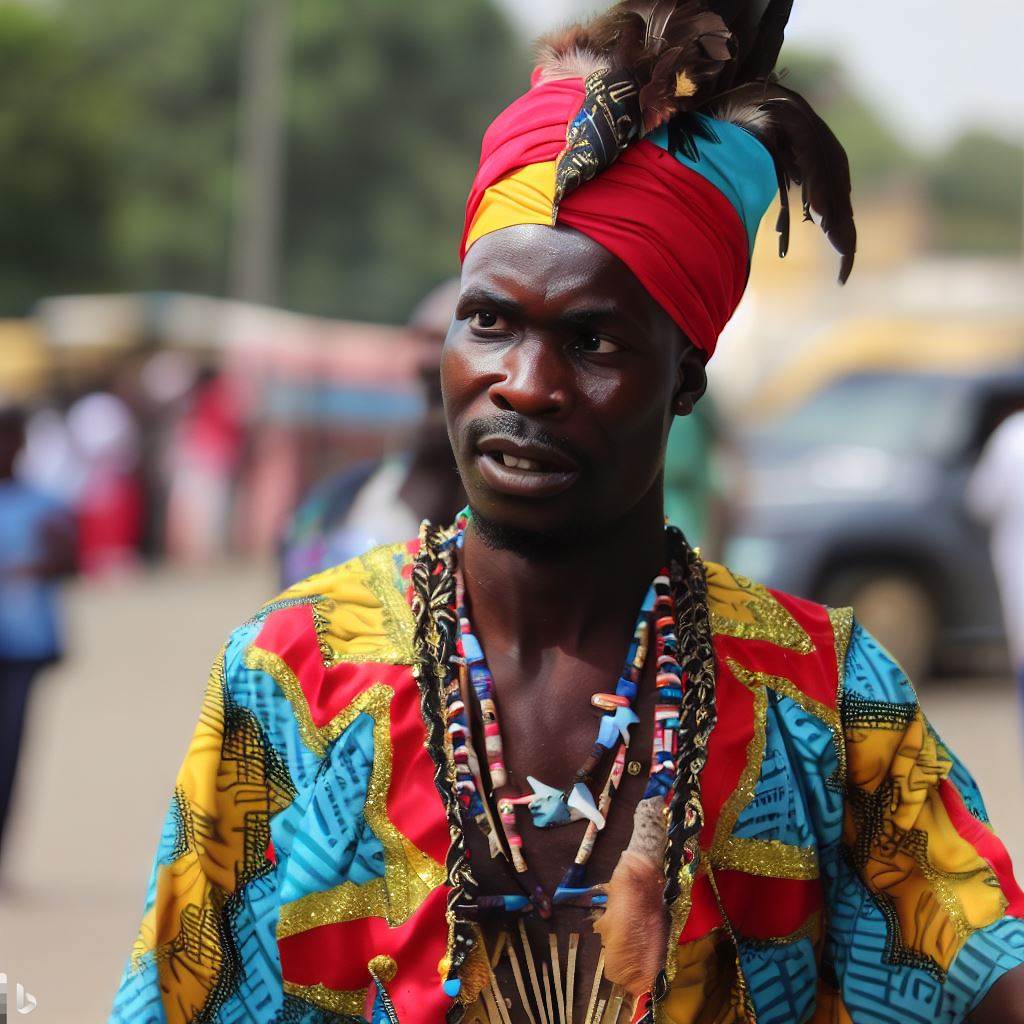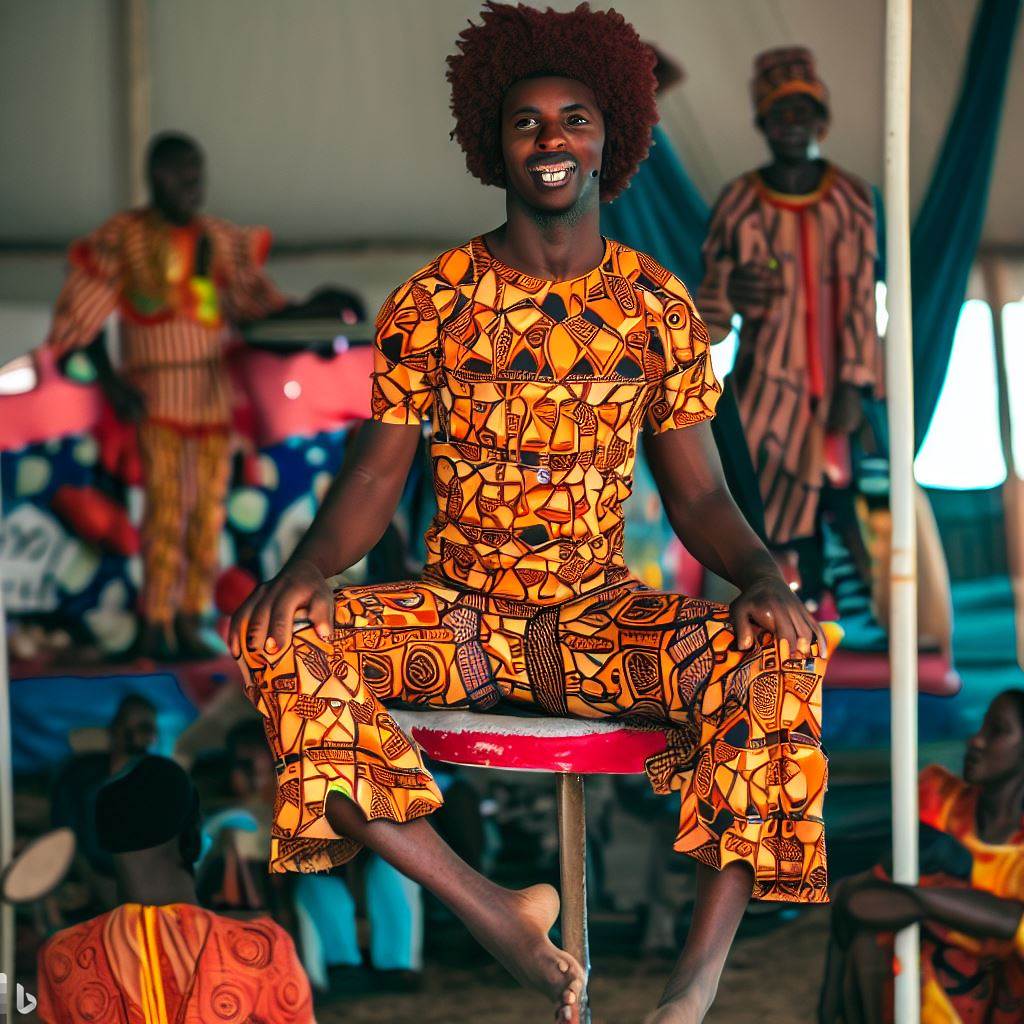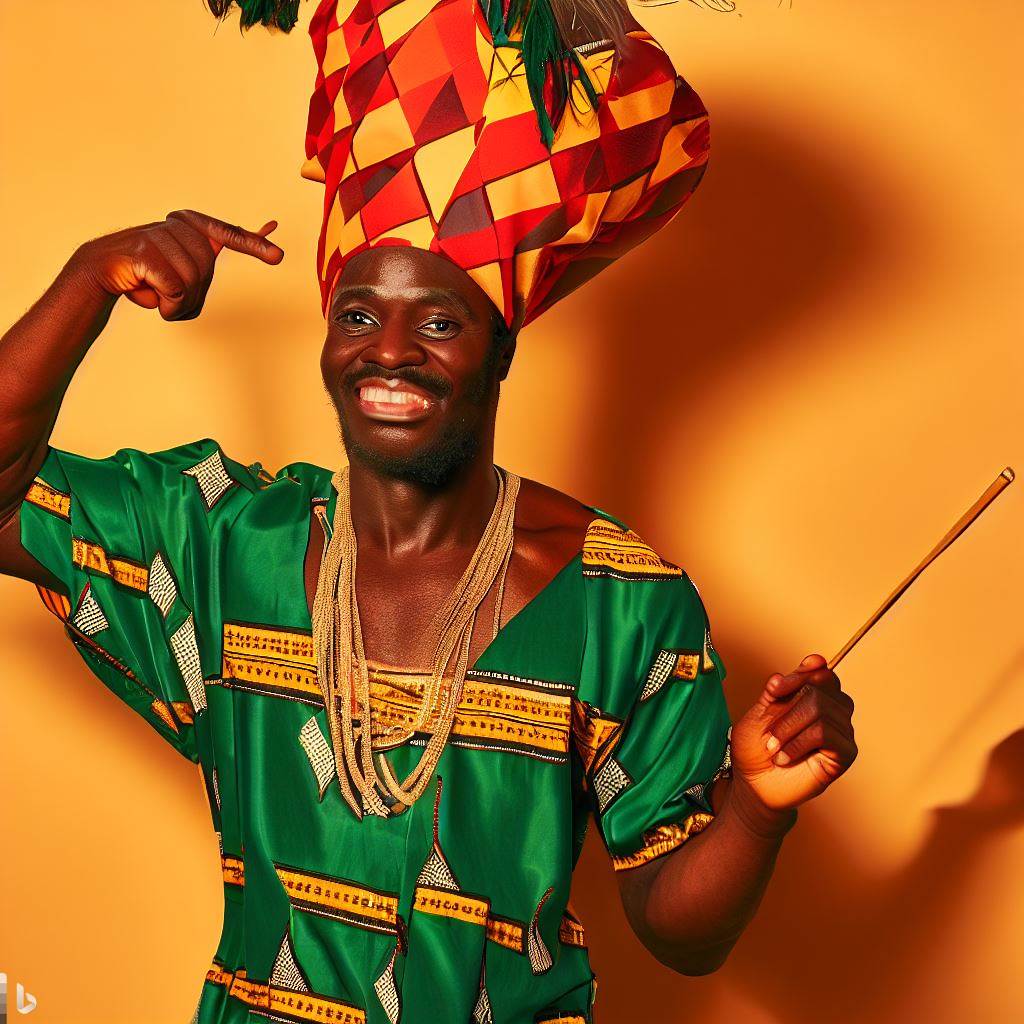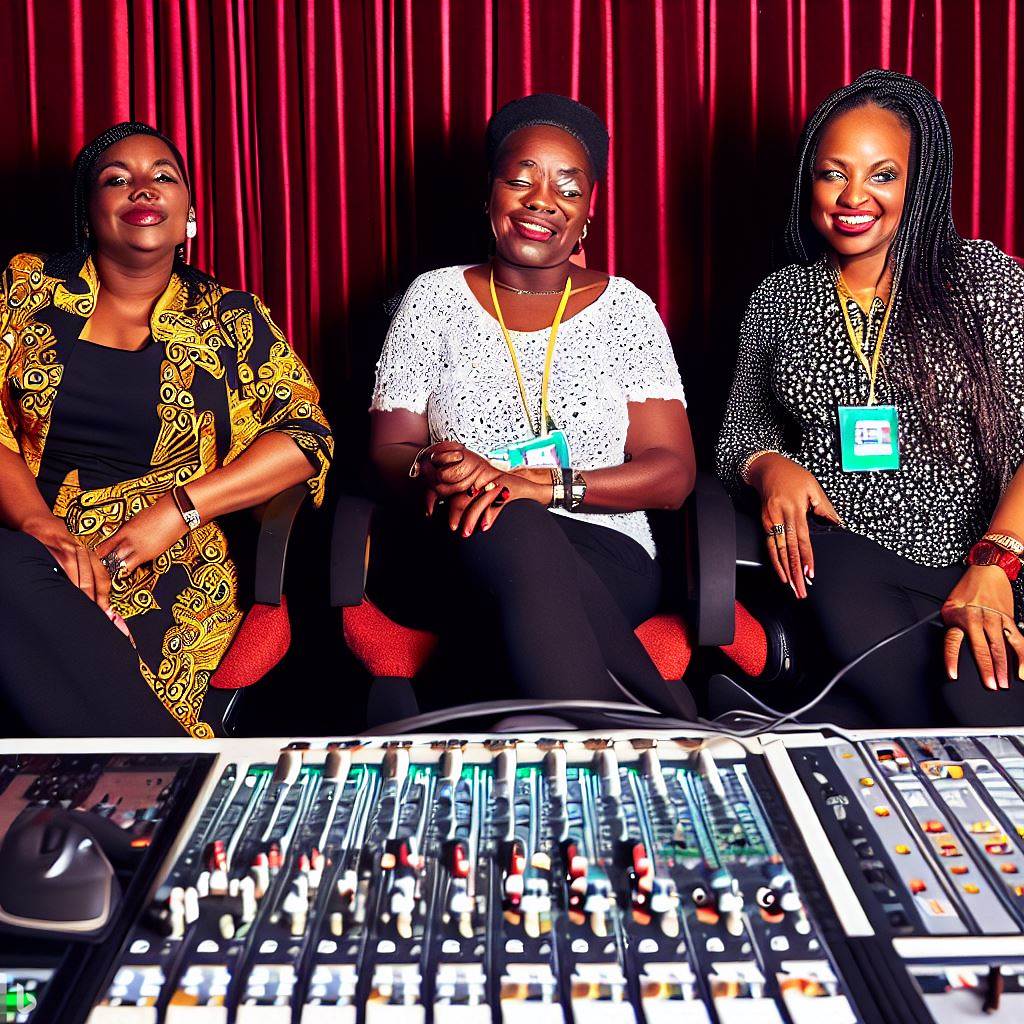Introduction
Public opinion refers to the collective views of the general public on a particular issue. Circus performers in Nigeria are a unique and often misunderstood group of entertainers.
This section aims to explore and analyse Nigerian perspectives on circus performers. Public opinion plays a significant role in shaping societal perceptions and attitudes.
In Nigeria, circus performers hold a distinct position within the entertainment industry. They amaze audiences with their acrobatic skills, daring stunts, and mesmerizing performances.
However, the Nigerian public’s opinion of circus performers is varied and complex.
Many Nigerians view circus performers with admiration, appreciating their athletic abilities and entertaining performances.
They consider them to be talented artists who contribute to the cultural diversity of the nation. In this perspective, circus performers are respected and valued for their unique skills.
Nevertheless, there are segments of Nigerian society that hold negative opinions about circus performers. Some see their performances as outdated and irrelevant in modern times.
Others perceive them as mere beggars, exploiting their physical abilities to earn money. This viewpoint highlights the misconceptions surrounding circus performers.
Nigerian views on circus performers also depend on cultural and religious backgrounds.
Some individuals believe that circus performances go against their religious beliefs or cultural traditions.
They associate the circus with Western influence, portraying it as a foreign form of entertainment that clashes with Nigerian values.
Nigerian public opinion towards circus performers is multifaceted. While some appreciate and respect their talents, others hold negative and misconstrued views.
It is essential to understand these perspectives to promote a better understanding and appreciation of circus performers in Nigeria.
Historical perspective on circus performers in Nigeria
Tracing the origins of circus performances in Nigeria
Circus performances in Nigeria can be traced back to the early colonial period when European circuses started touring the region.
These circuses showcased daring acts like acrobatics, juggling, and animal performances.
Evolution and changes in perception over time
Over the years, the perception of circus performers in Nigeria has undergone significant changes.
Initially, they were regarded with awe and wonder, as their acts were considered foreign and fascinating.
However, as Nigeria gained independence and embraced its cultural heritage, the perception started to shift.
Circus performances were seen as Western entertainment that did not align with Nigerian traditions.
Many Nigerians began to view circus performers as outsiders and questioned the relevance of their acts within the Nigerian context.
Historical events that influenced public opinion
Several historical events played a crucial role in shaping public opinion towards circus performers in Nigeria.
One of the significant events was the Nigerian Civil War (1967-1970).
During this period of intense nationalism, foreign influences, including circus entertainment, were frowned upon.
The rise of Nigerian music and film industries in the 1970s also contributed to the decline in the popularity of circus performances.
Nigerians started embracing their own home-grown entertainment, which further marginalized the interest in circus acts.
Additionally, religious conversions in Nigeria also affected public opinion towards circus performers.
As Islam and Christianity became more prevalent, the conservative religious sentiments associated with these faiths discouraged participation in or viewing of circus performances, which were often perceived as frivolous and non-religious.
Despite the changing perception, circus performers in Nigeria have managed to adapt and survive.
They have incorporated more traditional elements and narratives into their performances to appeal to local audiences while preserving the international circus art form.
The historical perspective on circus performers in Nigeria reveals a complex relationship between foreign entertainment and indigenous cultural values.
While initially embraced with awe and wonder, circus performers gradually faced skepticism and shifting public opinion influenced by historical events and religious conversions.
However, they have demonstrated resilience and adaptation, incorporating local elements into their acts to bridge the gap and continue entertaining Nigerian audiences.
Cultural and traditional beliefs about circus performers in Nigeria
Common misconceptions about circus performers
- Circus performers are often perceived as untalented and engaging in low-skilled work.
- There is a belief that circus performers are involved in witchcraft or have supernatural powers.
- Many Nigerians see circus performers as social outcasts or marginalized individuals.
- Some Nigerians hold the misconception that circus performers are lazy and rely on begging.
- There is a prevailing notion that circus performers lack education or formal training.
Attitudes shaped by religious and cultural values
- Religious beliefs influence the views on circus performers, with some considering their activities as sinful.
- In Nigerian culture, physical performance is often associated with traditional dance forms and not circus skills.
- Strongly held cultural traditions prioritize other forms of entertainment over circus performances.
- There is a general skepticism towards circus performers due to their unconventional lifestyle.
- Many Nigerians perceive circus performers as unable to contribute to societal development.
The impact of traditional Nigerian folklore and storytelling
- Nigeria has a rich tradition of folklore that often portrays circus performers in negative or mystical light.
- Traditional stories and proverbs often depict circus performers as tricksters or deceivers.
- These negative portrayals in folklore contribute to the skepticism and misconceptions surrounding circus performers.
- Folklore teaches values and wisdom but sometimes perpetuates stereotypes against circus performers.
- The influence of folklore makes it challenging for circus performers to gain acceptance and recognition in Nigerian society.
Understanding Nigerian views on circus performers requires examining the cultural and traditional beliefs deeply ingrained in society.
Many misconceptions surround circus performers, including the perception of untalented individuals engaged in low-skilled work.
Furthermore, some Nigerians associate circus performers with witchcraft or supernatural powers.
Religious and cultural values also shape attitudes towards circus performers.
Religious beliefs label their activities as sinful, while cultural traditions prioritize other forms of entertainment, such as traditional dance.
Circuses are often seen as unconventional, leading to skepticism and a belief that they contribute little to societal development.
Transform Your Career in Nigeria
Discover unmatched expertise with our personalized Career Consulting service. Navigate Nigeria’s job market with a strategy tailored just for you.
Get StartedTraditional Nigerian folklore and storytelling play a significant role in shaping opinions about circus performers.
Folklore often portrays them as tricksters or deceivers, perpetuating negative stereotypes.
These influences make it difficult for circus performers to gain acceptance and recognition within Nigerian society.
To challenge these misconceptions and biases, it is crucial to engage in dialogue and educate the public about the talent, dedication, and skill required in circus performances.
By promoting understanding and showcasing the positive contributions of circus performers, Nigerian society can overcome its preconceived notions and embrace this unique form of entertainment.
Read: Exploring the Role of a Music Publisher in Nigeria’s Industry
Media representation and public perception
Depiction of circus performers in Nigerian movies
Nigerian movies often portray circus performers in a stereotypical and exaggerated manner, perpetuating negative stereotypes.
These depictions can lead to the marginalization and discrimination of circus performers in Nigerian society.
The portrayal of circus performers as bizarre and abnormal in movies can shape public opinion and influence how they are perceived.
Influence of social media and online platforms
Social media platforms have a significant impact on public perception of circus performers in Nigeria.
People share videos, stories, and opinions about circus performers, which can either reinforce stereotypes or challenge them.
Negative comments and stereotypes shared on social media can influence public opinion and contribute to the stigmatization of circus performers.
Role of news outlets in shaping public opinion
News outlets play a crucial role in shaping public opinion about circus performers in Nigeria.
Biased or sensationalized reporting can perpetuate negative stereotypes and further isolate circus performers.
News outlets should strive for balanced and accurate reporting to ensure a fair portrayal of circus performers.
Media representation, including Nigerian movies and social media, has a significant impact on public perception of circus performers in Nigeria.
Negative stereotypes perpetuated in movies and shared on social media platforms can lead to the marginalisation and discrimination of circus performers.
News outlets also have a responsibility to portray circus performers fairly and accurately in order to shape a more positive public opinion.
Read: The Joy and Perseverance of Nigerian Circus Performers
Field research: Nigerian views on circus performers
Survey results from different regions in Nigeria
During our field research, we conducted surveys in various regions of Nigeria to gauge the public opinion on circus performers.
The results were diverse and provided valuable insights into the perceptions held by Nigerians.
- In the Northern region, the majority of respondents viewed circus performers as talented entertainers who bring joy to their communities.
- Conversely, in the South, a significant number of participants expressed concerns about the exploitation of circus performers, particularly in terms of their safety and working conditions.
- The survey in the Western region indicated that circus performers were seen as cultural ambassadors, showcasing Nigeria’s diversity and creativity through their performances.
Interviews with individuals from diverse backgrounds
In addition to the surveys, we conducted interviews with individuals from various backgrounds to gain a comprehensive understanding of Nigerian views on circus performers.
- A young student, Tolu, shared her admiration for circus performers, describing them as brave individuals who push the boundaries of human capability.
- Mr. Ade, a middle-aged businessman, expressed his reservations about circus performers, citing concerns about their physical well-being and the potential for accidents.
- Ada, a mother of two, highlighted the societal stereotypes surrounding circus performers and their lack of opportunities for formal education and employment.
Analyzing common perceptions, stereotypes, and concerns
After collating the survey results and interview findings, we analyzed the common perceptions, stereotypes, and concerns that emerged.
- The most common perception was that circus performers were incredibly talented individuals who dedicated themselves to their craft.
- However, stereotypes regarding the intelligence and educational background of circus performers were prevalent across the regions we surveyed.
- Concerns regarding the safety and well-being of circus performers were repeatedly expressed, especially in relation to their acrobatic stunts and animal performances.
- It was evident that there is a need for more education and awareness about the lives and challenges faced by circus performers to combat these stereotypes and address the concerns raised.
Our field research on Nigerian views on circus performers provided an insightful understanding of the varied opinions held by Nigerians.
The survey results and interviews revealed a range of perspectives, from admiration to skepticism, and highlighted common perceptions, stereotypes, and concerns.
By analyzing these findings, we can identify areas where further education and awareness are needed to foster a more nuanced understanding of circus performers in Nigerian society.
Read: Behind the Scenes: A Day in the Life of a Nigerian Circus Performer

Economic and Societal Contributions of Circus Performers in Nigeria
In Nigeria, circus performers have made significant economic and societal contributions, bringing immense benefits to the country.
This section highlights the job creation, economic advantages, positive impact on tourism and cultural exchange, and promotion of artistic expression and national identity brought about by circus performers.
Job Creation and Economic Benefits
- Circus performers in Nigeria have created numerous job opportunities, providing employment for a range of skilled professionals.
- From acrobats and clowns to costume designers and set builders, circus performances require a diverse workforce.
- The circus industry has boosted the economy by generating income for performers, support staff, and ancillary businesses.
- Not only do performers earn a living, but the ripple effects of their work contribute to increased spending and economic growth.
- Local economies thrive as circus troupes tour various cities, attracting audiences and injecting money into the communities.
Positive Impact on Tourism and Cultural Exchange
- Circus performers also play a vital role in promoting tourism, attracting both local and international visitors to Nigeria.
- The unique and captivating nature of circus performances draws tourists seeking unforgettable experiences.
- Visitors from different cultures are exposed to Nigeria’s rich artistic heritage and talented performers.
- Through cultural exchange, circus performances help foster understanding and appreciation between diverse communities.
- The influx of tourism revenue further boosts local economies and encourages sustainable development.
Promotion of Artistic Expression and National Identity
- Circus performers are quintessential artists who express their creativity through extraordinary acts and performances.
- Their talents showcase Nigeria’s artistic excellence and help preserve and promote traditional art forms.
- By incorporating elements of Nigerian culture into their acts, circus performers contribute to the preservation of national identity.
- These performers serve as cultural ambassadors, proudly exhibiting Nigeria’s rich heritage to audiences around the world.
- Artistic expression through circus performances inspires young Nigerians, encouraging them to pursue creative careers.
Circus performers in Nigeria are vital contributors to the economy and society at large.
Through job creation and economic benefits, they drive local economies, provide livelihoods, and stimulate growth.
Their positive impact on tourism enhances cultural exchange and showcases Nigeria’s artistic excellence, contributing to a stronger national identity.
Circus performers truly hold a special place in Nigeria’s rich cultural fabric and deserve recognition for their significant contributions.
Read: How to Enter Nigeria’s Circus Performance Industry
Challenges faced by circus performers in Nigeria
Discrimination and stigmatization
- Circus performers in Nigeria face discrimination and stigmatization due to society’s negative perception of their profession.
- They are often viewed as outcasts and are subjected to ridicule and prejudice in their daily lives.
- The general public tends to associate circus performers with low social status and lack of education.
- This discrimination makes it difficult for circus performers to gain respect and acceptance in Nigerian society.
Lack of government support and recognition
- Circus performers in Nigeria struggle due to the lack of government support and recognition for their profession.
- The government rarely provides financial assistance or resources to circus performers, making it challenging for them to sustain their livelihood.
- Without government recognition, circus performers face difficulties in obtaining necessary permits and licenses for their performances.
- The absence of official recognition also limits their access to training programs and professional development opportunities.
Addressing concerns about safety and animal welfare
- One of the major challenges faced by circus performers in Nigeria is the need to address concerns about safety.
- Circus acts often involve high-risk stunts and acrobatics, requiring proper safety measures and equipment.
- However, many circus performers in Nigeria lack access to appropriate safety training and resources.
- This puts their physical well-being at risk and increases the likelihood of accidents and injuries during performances.
Circus performers in Nigeria face various challenges that hinder their professional and personal lives.
They encounter discrimination and stigmatization, which affect their social status and acceptance within society.
The lack of government support and recognition poses economic difficulties and limits their opportunities for growth and development.
Furthermore, addressing concerns about safety and animal welfare remains a significant hurdle for circus performers.
They must prioritize ensuring the safety of both themselves and their animals, even with limited access to resources and training.
Overall, addressing these challenges requires a collective effort from society, government, and the circus community itself.
By promoting inclusivity, providing necessary support, and improving training opportunities, Nigeria can foster an environment where circus performers can thrive and contribute positively to the cultural landscape.
Promoting inclusivity and understanding
Importance of cultural education and awareness
- Cultural education plays a vital role in promoting understanding and inclusivity in society.
- By learning about different cultures, we can break down stereotypes and foster a sense of unity.
- It is crucial to educate Nigerians about circus performers and their cultural significance.
- Cultural awareness allows us to appreciate the talents and skills of circus performers.
- By embracing diversity and understanding different cultural practices, we can promote inclusivity.
Encouraging dialogue and dispelling myths
- Open and honest dialogue is essential to dispel myths associated with circus performers.
- Many Nigerians hold misconceptions about circus performers, believing they are inferior or strange.
- By engaging in conversations and sharing accurate information, we can challenge these perceptions.
- Public discussions allow us to address concerns and create a more informed and accepting society.
- Dialogue is a powerful tool in breaking down barriers and promoting understanding.
Supporting circus performers through advocacy and legislation
- Advocacy efforts are necessary to protect the rights and promote the well-being of circus performers.
- It is crucial to advocate for fair treatment and equal opportunities for circus performers in Nigeria.
- Legislation should be implemented to ensure the rights and dignity of circus performers are upheld.
- By supporting appropriate laws, we can create an enabling environment for circus performers.
- Advocacy and legislation go hand in hand to provide a supportive framework for circus performers.
Promoting inclusivity and understanding regarding circus performers in Nigeria requires various strategies.
Cultural education and awareness play a key role in breaking down stereotypes and fostering a sense of unity.
Encouraging dialogue helps dispel myths and challenges misconceptions.
Supporting circus performers through advocacy and legislation ensures their rights and well-being are protected.
By employing these approaches, we can work towards a more inclusive society that appreciates the talents and cultural significance of circus performers.hidden te
Conclusion
Nigerian views on circus performers have been varied and complex.
While some people view circus performers as entertainers and appreciate their skills and talent, others have negative perceptions rooted in cultural beliefs and stereotypes.
Despite these differing opinions, it is crucial for Nigerians to practice tolerance and acceptance towards circus performers.
By recognizing their value as artists and understanding the importance of diversity in the entertainment industry, Nigerians can promote a more inclusive society.
Additionally, it is important to challenge and debunk the negative stereotypes associated with circus performers.
Educating the public about their dedication, hard work, and contributions to the arts can help change perceptions and foster a more positive view of their profession.
Publish Your Professional Profile, Business or Brand
Showcase your expertise, gain trust, and boost visibility instantly on Professions.ng.
Publish NowIn the future, it is hoped that Nigerian society will continue to evolve and embrace circus performers as valued members of the entertainment community.
This may involve increased representation in the media, awareness campaigns, and collaborations between circus performers and local artists.
By fostering a culture of acceptance and appreciation, Nigeria can create an environment where circus performers are celebrated for their unique talents and contributions to the cultural landscape.




